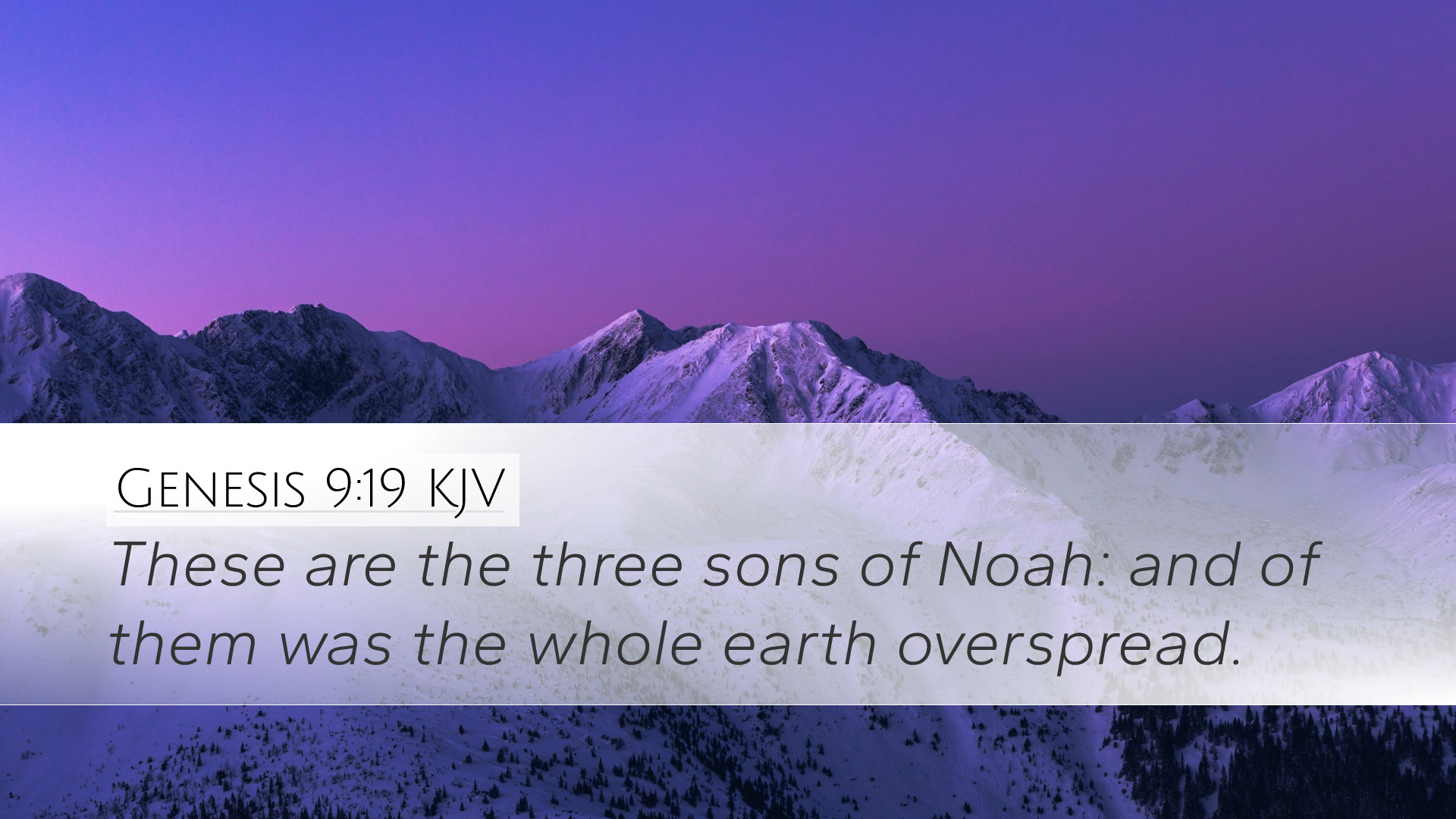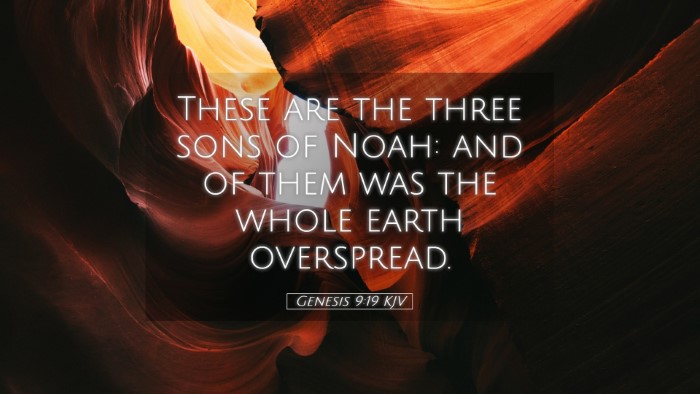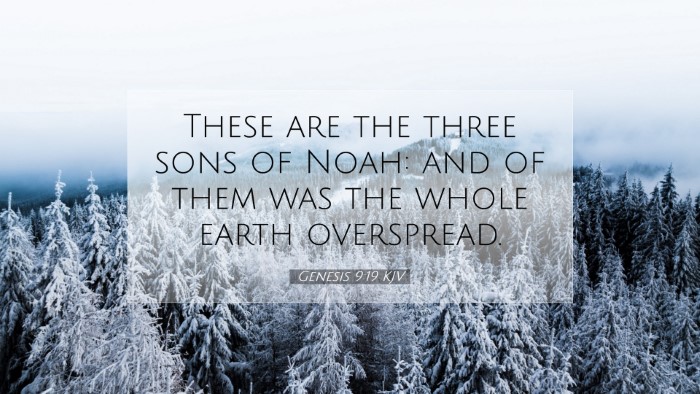Commentary on Genesis 9:19
Genesis 9:19: "These are the three sons of Noah: and of them was the whole earth overspread."
Introduction
The flood narrative of Genesis culminates in significant revelations about God's covenant with humanity and the establishment of a new order. Genesis 9:19 succinctly references the three sons of Noah, setting a foundation for understanding the propagation of humankind post-deluge. This commentary synthesizes insights from respected public domain sources.
Contextual Background
The mention of Noah's sons arises amidst the unfolding of God's covenantal promise to humanity after the flood. In the preceding verses, God reassures Noah and his family of His ongoing relational commitment through the establishment of the rainbow as a sign of His covenant.
Matthew Henry emphasizes the narrative as a pivotal moment showcasing the transition from judgment to promise, marking Noah as a key patriarch for humanity's future.
Interpretation of "These are the three sons of Noah"
This phrase, as noted by Albert Barnes, not only identifies the individuals—Shem, Ham, and Japheth—but also highlights their theological significance. These sons are crucial as progenitors of the nations.
- Shem: Traditionally understood to be the ancestor of the Semitic peoples, including those who would come to be known as the Israelites.
- Ham: Often associated with nations such as Egypt and Canaan, his legacy reflects the complexities of human civilization.
- Japheth: Recognized as the father of many of the Gentile nations, reflecting the broader expanse of human society.
Significance of "the whole earth overspread"
The latter part of the verse—“and of them was the whole earth overspread”—underscores the universality of Noah’s progeny. Adam Clarke elaborates that it denotes not only the physical dispersion of humanity but also the socio-cultural implications of this spread.
Each son’s lineage would embody different aspects of human culture, interaction, and diversification. The use of the word "overspread" suggests a rapid and expansive growth of humanity, indicative of God’s command to be fruitful and multiply (Genesis 1:28).
Theological Reflections
This verse serves as a reminder of God's sovereignty in human history. As Matthew Henry notes, despite the chaotic backdrop of the flood, God preserves a remnant through Noah's family to fulfill His divine purpose. The resulting genealogies are foundational for understanding biblical history and God’s plan for redemption.
Moreover, this scripture challenges believers to recognize their shared humanity. The common descent from Noah reinforces the notion of unity among diverse nations. It calls for respect and evangelistic zeal toward all ethnicities, grounded in the recognition of a shared origin.
Practical Applications for Today
- Unity in Diversity: As scholars and ministers, understanding that we are all descendants of Noah can foster a sense of community and mutual respect among different people groups.
- Mission Mandate: The global spread of Noah’s descendants aligns with the Great Commission. This serves as a reminder of the church’s call to reach all nations (Matthew 28:19).
- Gender and Cultural Considerations: The mention of only Noah’s sons can prompt discussions on the roles and contributions of women and marginalized groups in biblical narratives and church history.
Conclusion
Genesis 9:19 encapsulates a critical moment post-flood, embodying both a historical account and a theological affirmation. From the significant roles of Noah's sons to the overarching implication of humanity's shared destiny, this verse offers a wealth of insight for pastors, students, and theologians alike. The reflections provided by respected commentators underscore the importance of this passage in constructing a biblical worldview that embraces diversity while affirming unity under God’s overarching purpose.


